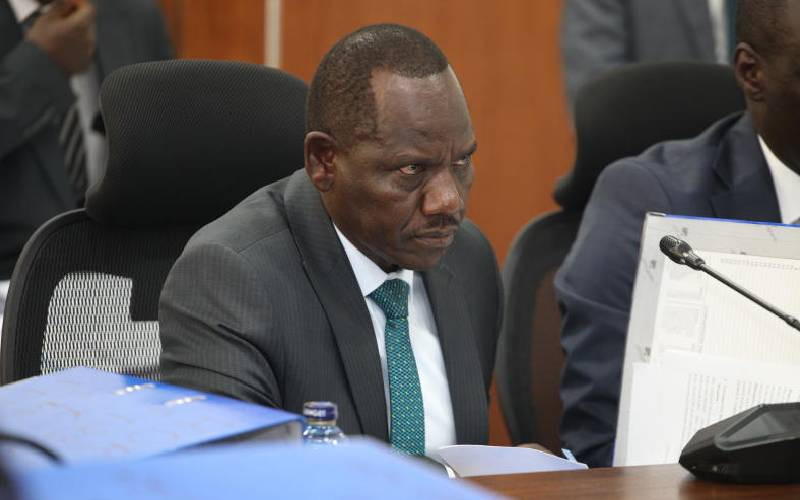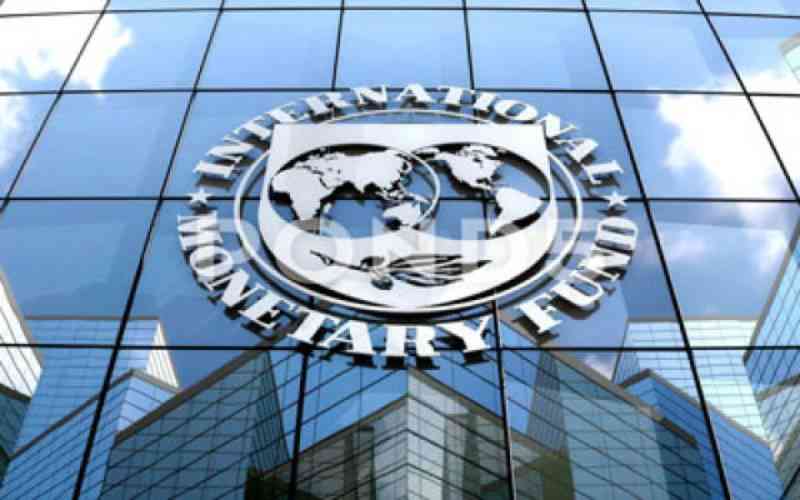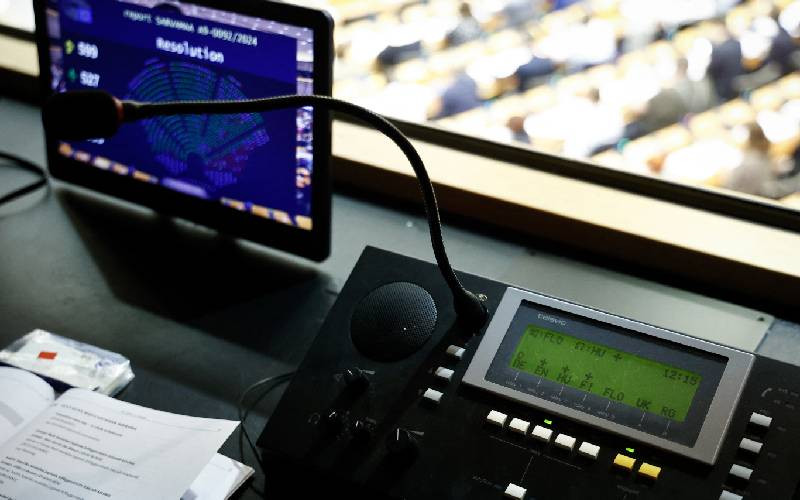
A section of Eldoret residents have threatened to paralyse business if a controversial tariff that pushed up water bills by 300 per cent is not revoked before September 30, 2025.
On Wednesday, the residents told the Eldoret Water and Sanitation Company (Eldowas) that they will use any means possible to stop the implementation of what they termed a punitive tariff that will drive away investors.
They hit out at Uasin Gishu MPs and Governor Jonathan Bii for remaining silent as the water company increases water bills.
The residents had secured a stay of execution of the new tariff in November 2024 but the Environment and Land Court in Eldoret struck out the petition last week, sparking fury.
Eldowas, in an internal memo dated September 17, 2025, directed its staff to implement the new tariff approved by the Water Services Regulatory Board (WASREB) in August 2024.
The consumers, who instructed their lawyer to appeal the High Court verdict, argued that the ballooning water bills will make Eldoret a ghost city.
One of the petitioners, Kipkorir Menjo, said the tariff will make Eldoret the most expensive city in Kenya to do business.
“The tariffs will turn Eldoret into a ghost city. Residents will be appealing the case in their relentless pursuit of reasonable tariffs. Shockingly, unaffordable tariffs are charged on water that flows to Eldoret through gravity from Elgeyo Marakwet County,” Menjo said during a consumers’ meeting in Eldoret.
He argued that people operating car washes and other small businesses that require water will be forced to close shop since they will not afford to pay bills.
“They are telling us that they are increasing tariffs to secure money to finance capital projects, and we are telling them to borrow loans from commercial banks the same way they did to construct Chebara Dam in Marakwet West, which is the largest supplier of water to Eldoret,” Menjo said.
Former Eldoret town clerk Joseph Kendagor, who was among the leaders who pushed for the establishment of Chebara dam in the 1990s, described the new tariff as an embarrassment to the new city.
Kendagor said the 300 per cent increase in water bills was inhuman and exploitative.
“Eldowas should have increased the tariff by between 10 and 20 per cent. The company’s Board of Directors failed the people of Eldoret by approving the punitive tariff,” he said.
Abubakar Bini said Eldoret residents have been abandoned by political leaders who have remained silent since 2024 when the punitive tariff was gazetted.
Stay informed. Subscribe to our newsletter
“The government should be ready for massive protests if there is no political intervention,” said Bini.
He warned that residents risk consuming contaminated water if the decision is not reversed.
Another resident, Aaron Maina, criticized the move, saying it limits access to water in a fast-growing city.
“It is embarrassing that a government that is pushing for economic growth of small businesses is raising water bills by 300 per cent,” he said.
Flora Chemweno argued that Elgeyo Marakwet County, which supplies water to the city should be compensated if the increased water bill is not reversed.
“If you are increasing the rates by 300 per cent, then it is fair that the revenue is shared equally with Elgeyo Marakwet.
“We will be coming to the streets to protest alongside our Gen-Z children,” Ms Chemweno warned, adding that the tariff was too expensive for residents.
The residents’ lawyer, Maathai Maina, said he had been instructed to appeal the High Court ruling striking out the petition seeking to overturn the new tariff.
“A stay of execution will be filed in a bid to stop the tariffs. We will continue the battle until Eldoret residents get fair and affordable tariffs,” said Maina.







